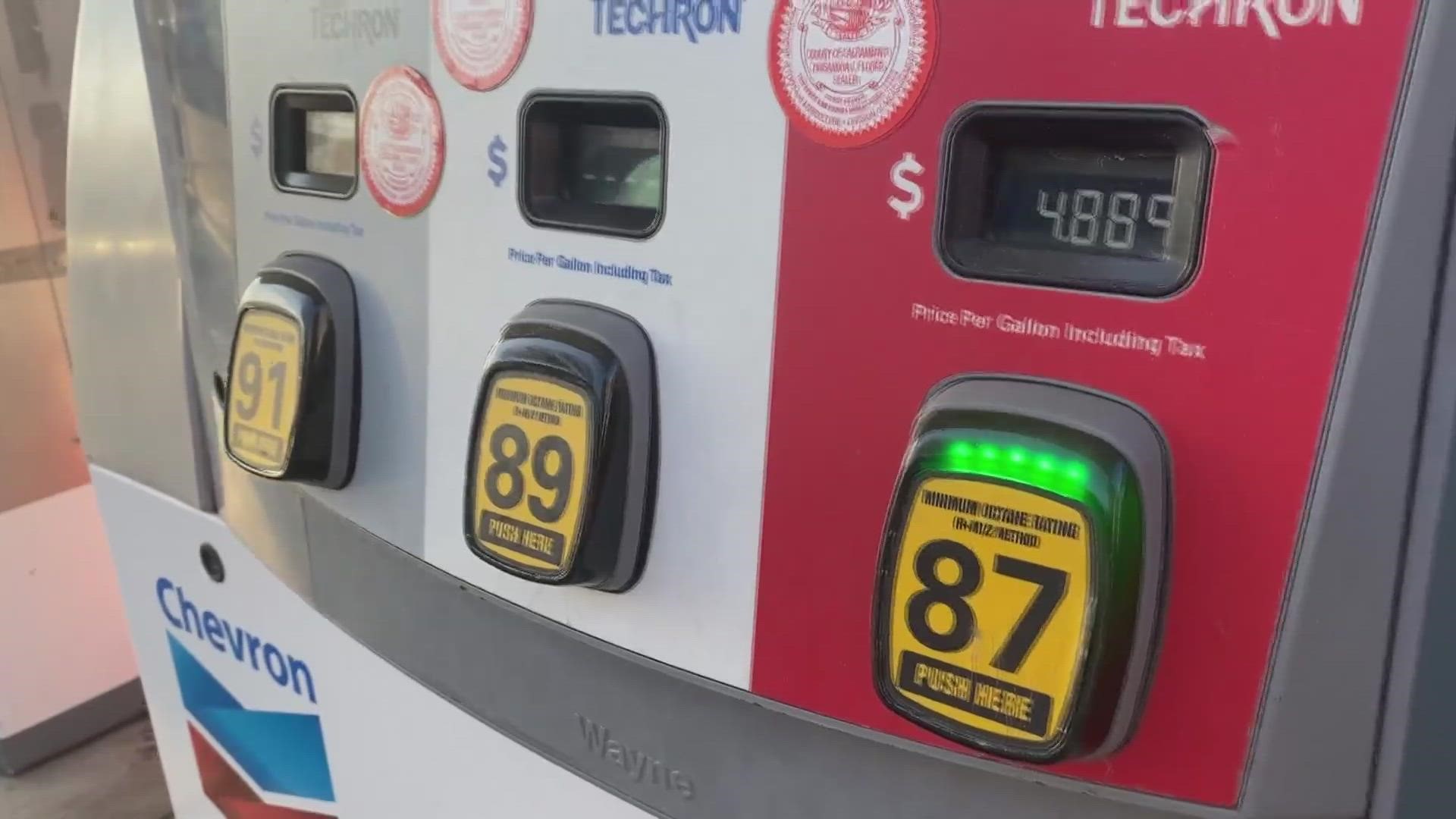SACRAMENTO, Calif. — We all have one gas station nearby that seems to have better deals than the others in our area, which begs the question: Is cheaper gas worse for your car?
Patrick De Haan, the head of petroleum analysis at GasBuddy, says all base gasoline is mostly the same when it's delivered to stations.
“Gasoline all has to meet federal regulations and requirements for certain additives, certain levels of detergents,” said De Haan. “At the end of the day, a lot of Americans, you know, they have their loyalties and go to the same station. But your car doesn't really care so much. As long as that gasoline meets those standards, it's going to run with very little difference."
De Haan says there could be differences in how gas stations are maintained, using things like sensors to detect contamination or extra filtration systems at the pump. According to De Haan, stations store gasoline underground, so contamination is possible but is uncommon.
There can also be differences in how ‘fresh’ the fuel is, which he says doesn't make a real difference in how your car runs. The perception of a station may be what’s making you second-guess its fuel.
Some major brands have additives or detergents in the fuel that help clean the engine over the car's lifetime and distinguish their gas from other stations. De Haan said the ‘special’ additives or detergents stations market may help cars go further.
At the end of the day, De Haan says when cars get higher in mileage, toward 100,000-150,000, issues are usually related to wear-and-tear versus fuel issues.
“It's usually not too bad of an issue, every car has carbon buildup. Essentially, the gist of it is that every type of gasoline starts with kind of the same base ingredients and those higher-end stations may add additional detergents and additives that distinguish their gas from other stations,” said De Haan.
He also explains the difference between premium and regular types of gasoline, and which one is right for your car.
“Premium gasoline may sound premium. People may think it's like a deluxe fuel and it cleans your engine out even more, but it really doesn’t do anything different at all,” said De Haan. “In fact, unless your vehicle requires premium, it’s basically flushing money down the toilet buying it because it's not going to do anything different to your car.”
The difference between regular, mid-grade and premium fuels is the octane numbers. Some vehicles are programmed slightly differently to take advantage of this. The numbers at the pump (87, 89 and 91-93) represent the ability of the fuel to avoid pre-ignition which can hurt the engine. This is usually what higher-performance or turbo-charged vehicles need.
De Haan says cars requiring regular gasoline should only stick to regular, but check your owner's manual to make sure.
WATCH MORE ON ABC10: Gov. Newsom ends California's coronavirus emergency order 3 years into the pandemic



















